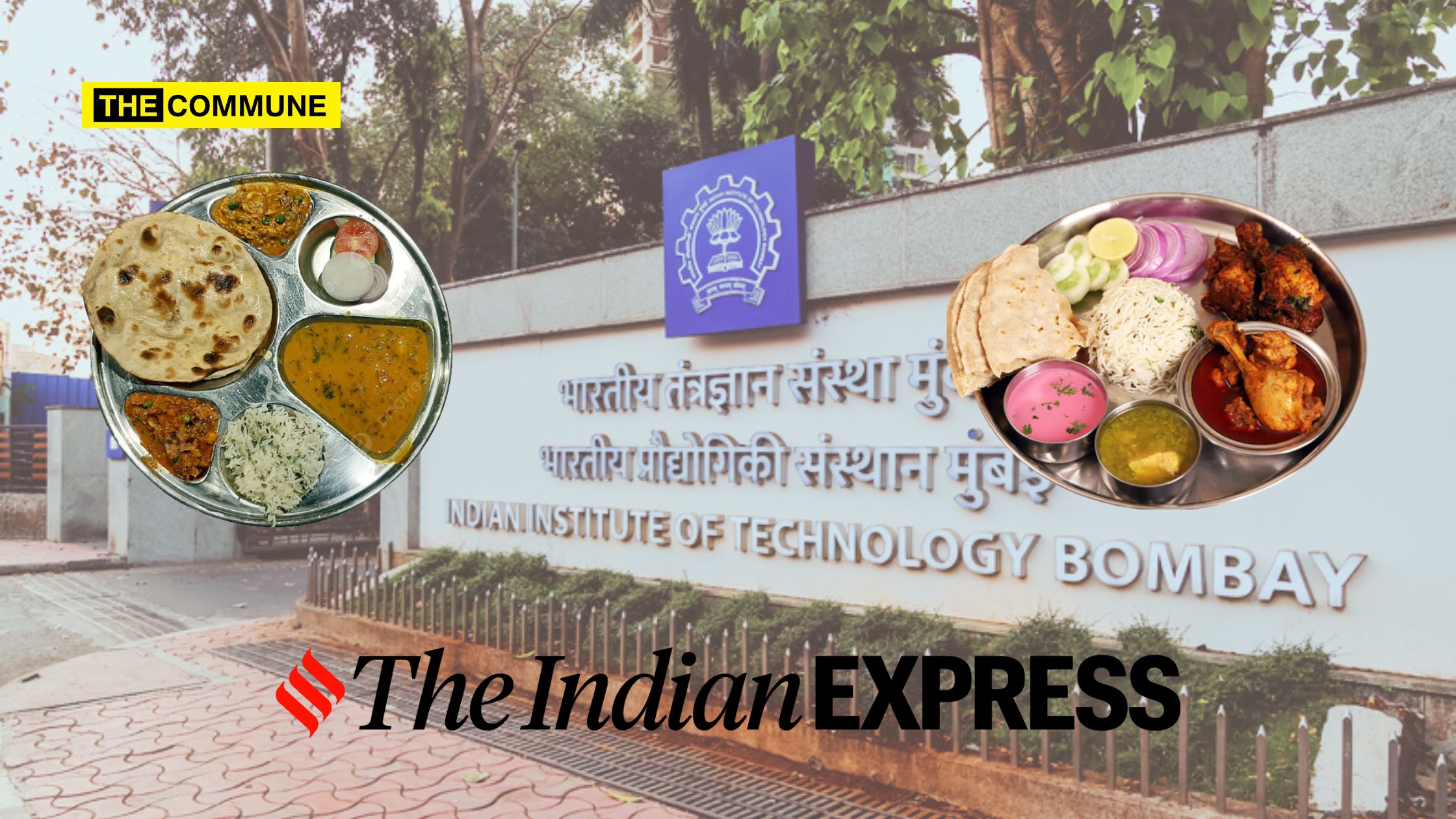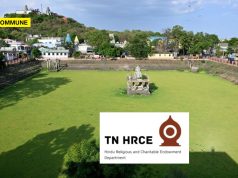
A dispute has arisen at the Indian Institute of Technology-Bombay (IIT-B), regarding dining arrangements after a humanities student named Abhishek Mali, allegedly attempted to make strict vegetarian students, mainly from the Jain community, witness and smell meat dishes during dinner. He was later fined ₹10,000 for his act by the institute.
According to the report by Swarajya, the conflict centers around Hostels 12, 13, and 14, which house primarily PhD scholars and share a common mess area. Students have been seeking a reserved space for vegetarian meals, requesting just six out of the 129 tables in the dining hall.
This issue originated in 2020 during ideological confrontations related to the Citizenship Amendment Bill (CAB). These tensions escalated when a professor dined in the vegetarian section while consuming a meat dish, leading to further confrontations.
The controversy intensified in July this year when a student email suggested that opposition to eating meat in the vegetarian section could lead to disciplinary actions. This led to a controversial poster stating “Vegetarians only are allowed to sit here,” sparking heated debates and accusations of food discrimination.
Amidst the escalating tensions, the administration removed the controversial poster and initiated discussions to designate an exclusive area for vegetarian meals. The institute also made arrangements for those observing Paryushan, a Jain festival.
Students complained of harassment, including purposefully leaving eggshells on vegetarian-only tables and smearing food ladles of the Jain food counter with meat.
On September 27, the Mess Council officially allocated six tables in the canteen for vegetarian meals, emphasizing that these tables were accessible to any student choosing to consume vegetarian food.
In response, Abhishek Mali and other students staged a protest by deliberately eating meat at one of the designated vegetarian tables. This led to the imposition of a fine on Mali and the identification of others involved for disciplinary action.
The deliberate provocation and needless politics over trivial matters has made several alumni and concerned individuals to call for the shutdown of the Humanities and Social Sciences departments.
Earlier, Swati Goel Sharma of the Swarajya had shared an email in which a student alleges that on 5 October 2023, a student after using a spoon to take omelet used the very same spoon to take food from the Jain/Vegetarian counter. When questioned, the student apparently gave a very rude response and asserted that he would continue with his behaviour.
Read this painful email by a student at IIT Bombay complaining to authorities that those hostile to their vegetarianism are deliberately using the same ladle used for meat dishes to take vegetarian/Jain meals
— Swati Goel Sharma (@swati_gs) October 6, 2023
Such sensitivity has so far been normal in the Indian society. Even… pic.twitter.com/ftVs7O3yAs
The dietary choices of students at IIT Bombay, as with other institutions in India, are generally a matter of personal preference. The campus usually offers a variety of dining options, including vegetarian and non-vegetarian food. Many students, staff, and faculty members at IIT Bombay follow a vegetarian diet due to personal, cultural, or religious reasons, but there is no official requirement for students to be vegetarians, as vegetarianism is a common dietary choice in India.
The Indian Express has spun the episode to weave a narrative that non-veg students are being intimidated.
As per a report published in The Indian Express, there students whose diet includes meat and eggs live in fear and tension.”
Quoting one fo the students, the Indian Express report said, “Even though there was always informal segregation of veg and non-veg food eaters in the mess out of mutual respect, with a formal rule and subsequent action against those who protested, there is now a certain amount of fear among students. During breakfast, a time when the mess is the most crowded, students eating eggs do not go and sit at the veg-only tables, even if those are not occupied.“
You can’t make this stuff up
— Swati Goel Sharma (@swati_gs) October 10, 2023
After IIT-Bombay fined a Social Science PhD student Rs 10000 for deliberately taking his meat dish to Jains and other vegetarian students seated in their corner tables, @IndianExpress has come up with a ‘dar ka mahaul’ story. On how students eating… pic.twitter.com/y1wooieMrq
The point of the matter was that a fine was imposed after an online meeting of the mess council for hostels 12, 13, and 14 on 1 October 2023. During this meeting, the council asserted that the protest was a deliberate effort to disturb the tranquility and unity in the mess, despite the advice provided by the Associate Dean of Students’ Affairs.
Following the announcement of the decision to allocate six distinct tables for vegetarian meals in the final week of September, a small group of students expressed their dissent by consuming non-vegetarian dishes at these designated tables.
They consumed non-vegetarian food at one of the six tables designated for vegetarian-only dining, resulting in disturbances within the dining area.
In response, the mess council imposed a substantial fine of ₹10,000 on one of the protesting students. This decision prompted strong reactions from both within and outside the campus. Some professors expressed their disapproval on social media, while the Ambedkar Periyar Phule Study Circle cautioned that they would initiate protests unless the fine was rescinded.
The IITs were created to promote academic and research excellence in the fields of science, engineering, and technology, but in the last few years, this bastion of technical excellence, which has produced some of the greatest innovators and business leaders, allowed the study of social science in many of its campus. Social sciences are not typically the primary focus of study at Indian Institutes of Technology (IITs). IITs are renowned for their emphasis on engineering, technology, and the physical sciences. The programs and departments at IITs primarily revolve around disciplines such as computer science, electrical engineering, mechanical engineering, civil engineering, chemical engineering, mathematics, and physical sciences.
However, this novel idea of giving scholars a different perspective on studying subjects like economics, sociology, or management has backfired.
Recently, IIT Delhi professor Divya Dwivedi has gained significant attention due to her contentious remarks about Hinduism during the ongoing G20 Summit 2023 in the national capital. In an interview with French media, Divya Dwivedi suggested that the India of the future would not include Hinduism, causing a social media uproar when the video clip of her statements became widely circulated.
In an interview, the professor of philosophy at IIT Delhi said, “There are two Indias. The past India of racialized caste order oppressing the majority population, and then there is the India of the future that is an egalitarian India without caste oppression and Hinduism. That is the India which is not yet represented but is waiting, longing to show its visage to the world.“
Subscribe to our channels on Telegram and WhatsApp and get the best stories of the day delivered to you personally.




